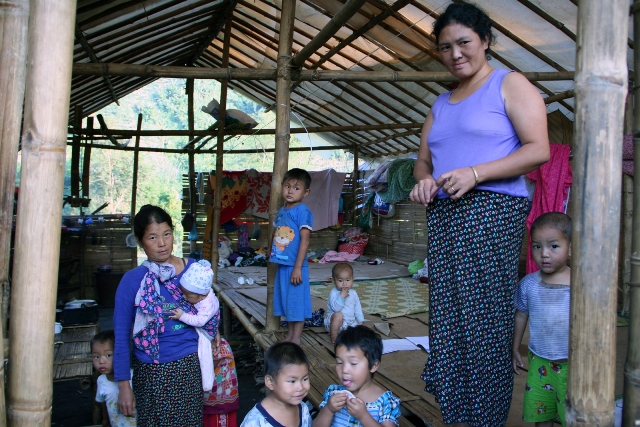Ethnic Groups And Advocates Demand Investigation Into Burma Army’s Systematic Use Of Rape, Sexual Violence

Human rights organisations and ethnic political groups have called for an international investigation into systematic sexual abuses committed by the Burma Army, noting that reports of rape continue to emerge three years after reformist President Thein Sein’s administration took power.
The Kachin National Oganisation, a political party from Kachin State, called for an international investigation and alleged it had documented cases of rape and sexual violence committed by Burma Army soldiers as recently as the 10th of April 2014.
“On 10th April 2014, a 17-year-old schoolgirl from Kagam village [from] Dawhpum Yang County in Kachin State was allegedly gang-raped by two Burmese soldiers belonged to Light Infantry Battalions (LIB) 320,” the KNO said, “The incident occurred where the girl was on her way back from [her] farm with a motorcycle after she dropped her mother who was there to herd their cattle. She has lodged an official complaint to the local Police Station but no further action has been taken so far.”
The KNO claim that human rights abuses perpetrated by the Burma Army in Kachin State were systematic and accused the government of war crimes.
“We are gravely concerned at the fate of this young girl, and of other civilians in this area, who are being systematically and deliberately targeted during new Burma military campaign against the Kachin Independence Army (KIA). This is a clear sign that the Burmese Army is committing war crimes.”
Naw K’nyaw Paw, the Secretary of the Karen Women’s Organization (KWO), a community based organisation representing more than 49,000 women from Burma, said that there was a culture of impunity in the Burma Army towards human rights abuses, and especially sexual violence.
“In that culture it is acceptable to use sexual violence against ethnic women. The highest levels of the military must change that culture.”
Naw K’nyaw Paw also called for an international investigation, arguing that Burma’s President was not in full control of the country’s military elite.
“I believe the President should take the issue more seriously and there is enough evidence that the military should be held accountable. I think the problem is that the President is not in control over the military. For example, since he [Thein Sein] came into power in 2011 he ordered the Burma Army to stop attacking the Kachin Independence Army (KIA) but the Burmese Army continues to attack. He told the International Community that the guns would be silent last year and he would have a nationwide ceasefire in place but he was never able to do it. The military continues to fight the Taang (Palong), the Shan and the Kachin.”
A January 2014 report by the Women’s League of Burma, a multi-ethnic umbrella group representing 13 women’s organisations from Burma, documented more than 100 cases of military perpetrated sexual violence and rape since 2010 with victims as young as eight years old. Of these, 47 were gang rapes and 28 women were either killed or died of their injuries.
The WLB claim that sexual violence is part of a deliberate strategy used by the Burma Army.
“These crimes are more than random, isolated acts by rogue soldiers. Their widespread and systematic nature indicates a structural pattern: rape is still used as an instrument of war and oppression.”
Meanwhile the British government has been criticized by the Burma Campaign UK for failing to take “any steps to tackle impunity in Burma” when it came to military perpetrated sexual violence.
Burma Campaign UK, a human rights advocacy organisation, said that the British government was putting trade in front of human rights in the country’s new engagement with Burma. “Burma Campaign UK believes that the British government is reluctant to upset the government of Burma, as its new priority for the country is trade, not human rights,” the organisation said in a statement.
Zoya Phan, from Burma Campaign UK, maintained that an international investigation was the only strategy that could halt the ongoing issue of sexual violence in Burma. “The silence of the British government in addressing impunity for rape by the Burmese Army encourages President Thein Sein to believe his army can continue to get away with rape.”
The Burma Campaign UK criticized the British government for failing to take “any steps to tackle impunity in Burma” when it came to military perpetrated sexual violence. This is despite the UK government including Burma in its Preventing Sexual Violence Initiative – a project with the aim to “strengthen and support international efforts to respond to sexual violence in conflict – including by enhancing the capacity of countries, institutions, and communities to support survivors and end impunity for perpetrators”.
Zoya Phan claims trade between Burma and Britain has priority over human rights.
“William Hague can’t say addressing impunity for sexual violence is a priority, but then allow impunity in Burma because he has others priorities such as trade and investment. The only way to start to end the use of rape by the Burmese Army is if, for the first time, they think they might not get away with it. An international investigation is the only way this will happen.”




